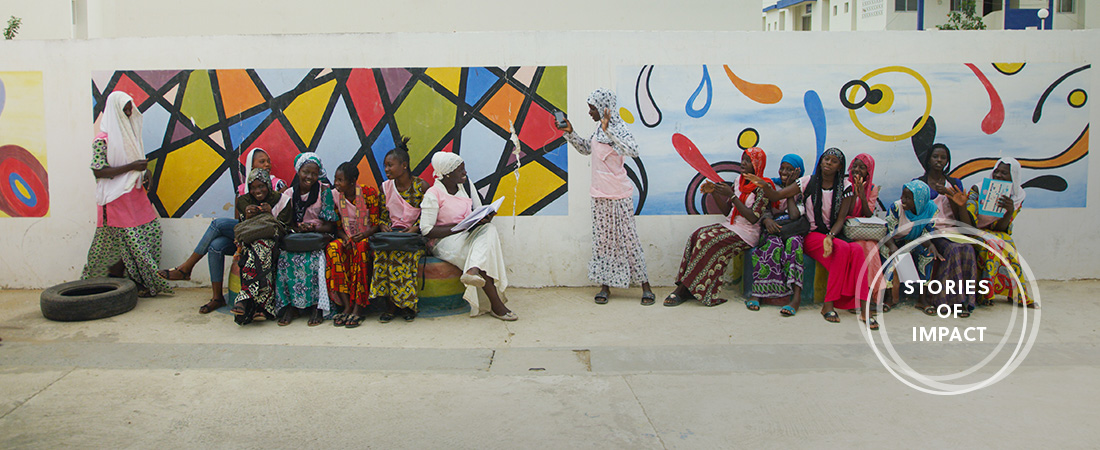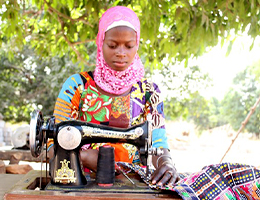A Success Story in Senegal

Participants in the USAID-funded APTE-Senegal program.
When Adama Diedhiou first learned of her mother’s illness, she did what many young women in Senegal do: she dropped out of school in order to find work so that she could care for her mother.
The 23-year-old Diedhiou became a domestic servant in Dakar. But she soon realized that she needed another way to earn a living—one that wasn’t 249 miles away from her ailing mother. However, without much of an education, Diedhiou was stuck. How could she earn enough money to support herself and her loved ones?
Then she heard about EDC’s APTE-Senegal program, or Projet de l’amélioration des performances de travail et d’entreprenariat. Funded by the Mastercard Foundation, APTE-Senegal helps young people develop the economic and life skills they need to earn an income on their own. The program works with Senegal’s Ministry of Education and Ministry of Technical Vocational Education and Training (MoTVET) to strengthen middle school and vocational training systems across the country. The program also works with the private sector to help students gain practical work experience through activities such as job shadowing or internships.
Diedhiou moved back home and enrolled in a local TVET program that was part of APTE-Senegal. She learned how to generate her own income through making and selling goods, to manage the money she earned, and to look beyond her short-term economic needs. She then put those skills to use by starting her own business, where she made and sold fatayas, a kind of baked pastry, and yassa, a spiced dish.
Diedhiou soon had enough money to care for her mother. But before long, her father also fell ill, so Diedhiou began to sew to earn additional income.
“I figured, I can’t stick to fatayas and yassas,” she says. “I have profits, of course, but that’s not enough for me . . . I go to school, and when I return at 3 p.m., after eating, I sew. And if I don’t have clothes to sew, I make fatayas and yassas, and it is with these profits that I treated my father.”
Diedhiou credits the program with changing her outlook on life.
“I hadn’t understood anything in life,” she recalls. “I didn’t have a project or a clear set of objectives . . . But today, with APTE-Senegal, I have become ambitious.”
